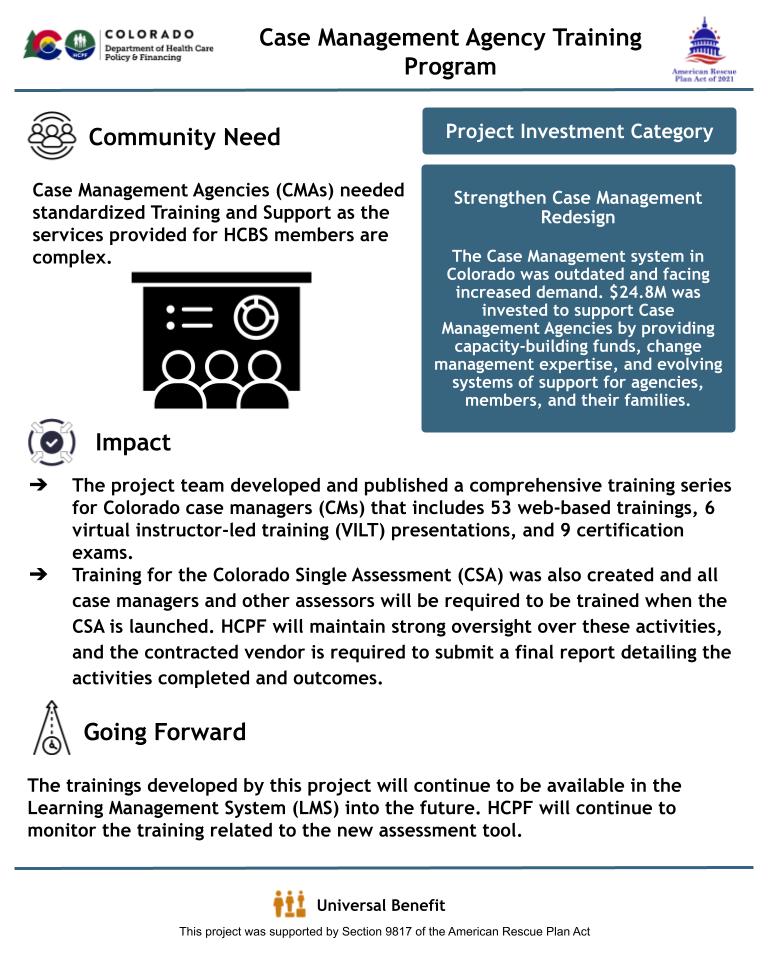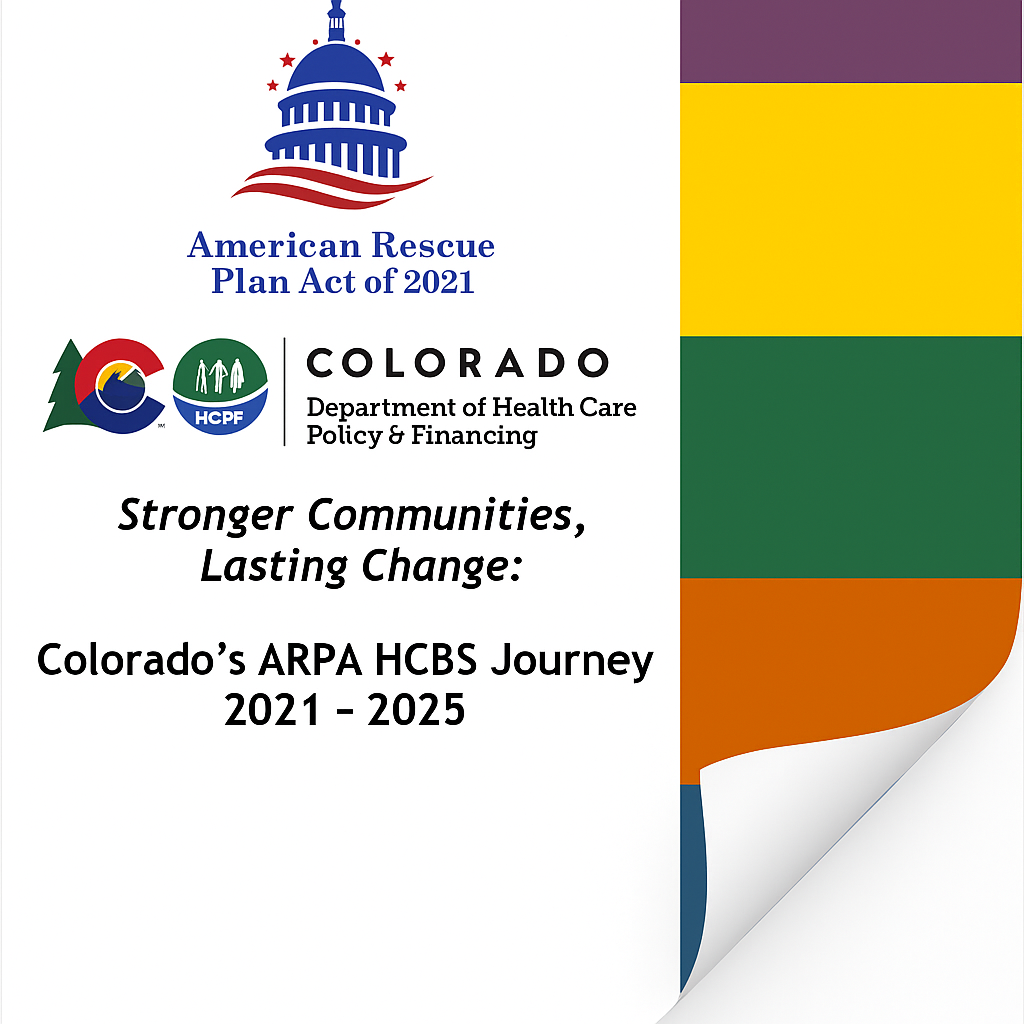Strengthen Case Management Redesign
The Need
The transformation of Colorado’s case management system is underway, requiring a complete reorganization of a decades-old system. Colorado is the second fastest-growing state for older adults, which is driving increased demand for HCBS services. This, in combination with the fact that 84% of HCBS members have a chronic condition, 31% of whom have 5 or more chronic conditions, is having a measurable impact on state budgets and program demands. As the case management system adapts and transforms in preparation, growing pains could be better addressed if case management agencies were better prepared. To assist with expected organizational and system changes, the 18 | Colorado HCBS Spending Plan Department proposes providing capacity-building funds, change management expertise, and evolving systems support for agencies, members, and their families.
5.01 - Case Management Capacity Building
Read a more in-depth summary of this project's outcomes
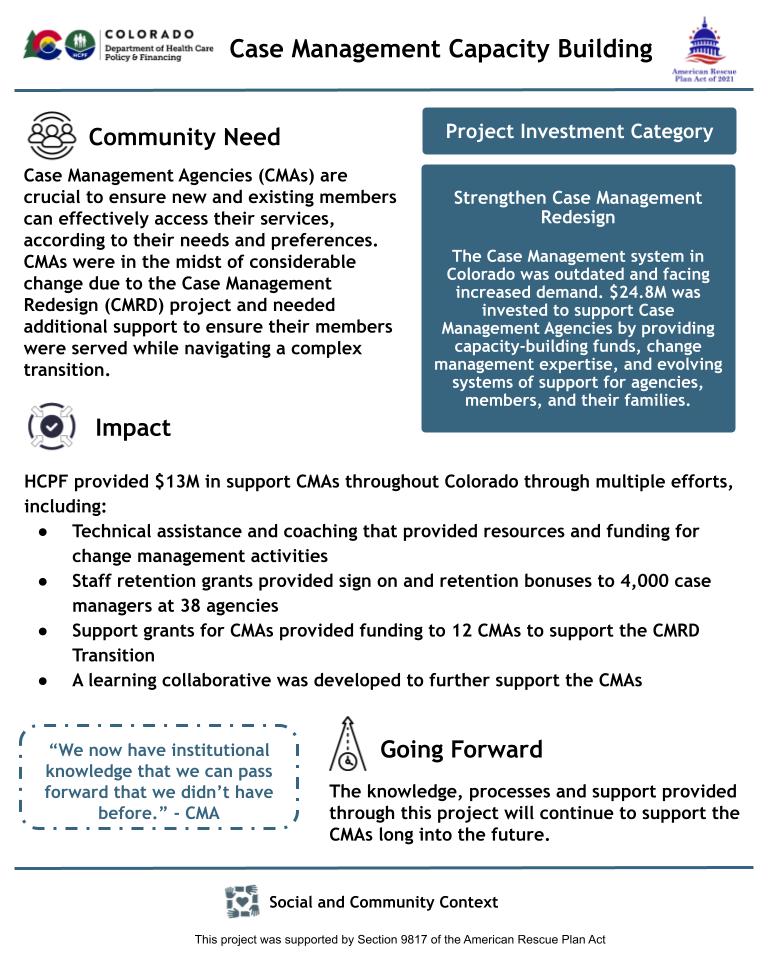
5.02 - Improve and Expedite Long-Term Care Eligibility Processes
Read a more in-depth summary of this project's outcomes
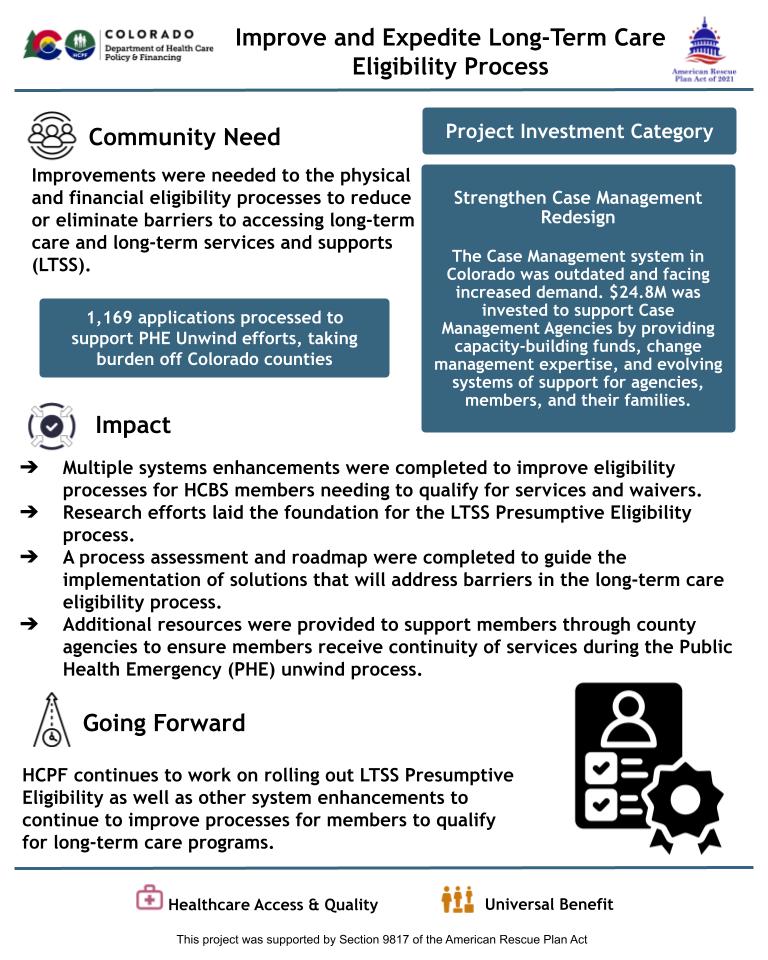
Initiative 5.03 - Case Management Rates
Read a more in-depth summary of this project's outcomes
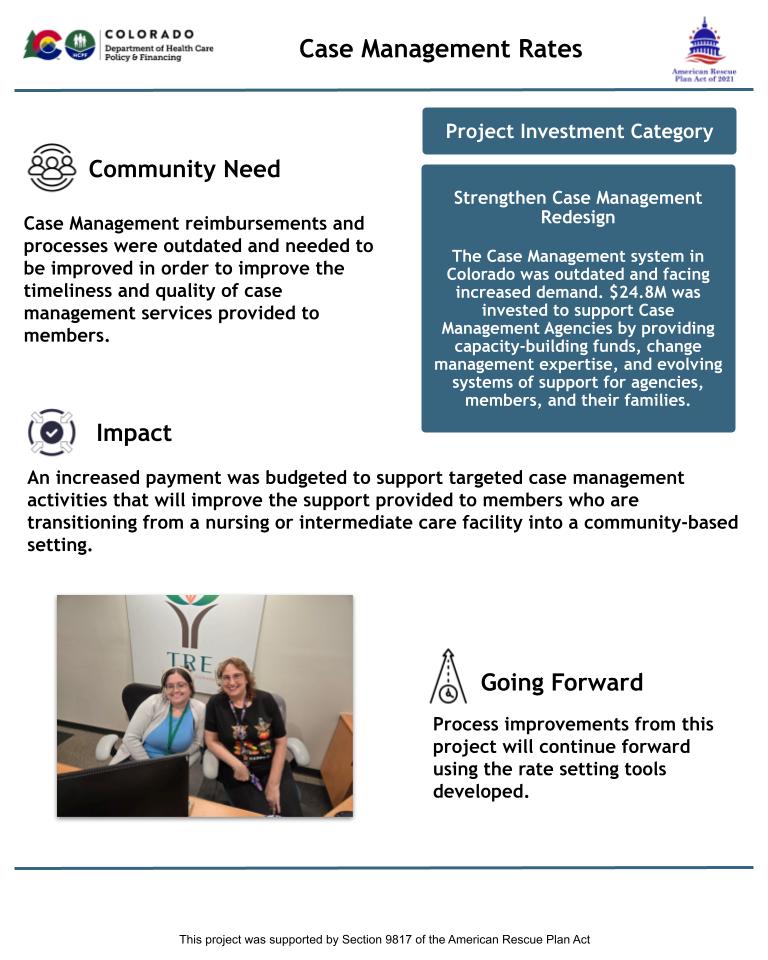
Initiative 5.04 - Case Management Best Practices
Read a more in-depth summary of this project's outcomes
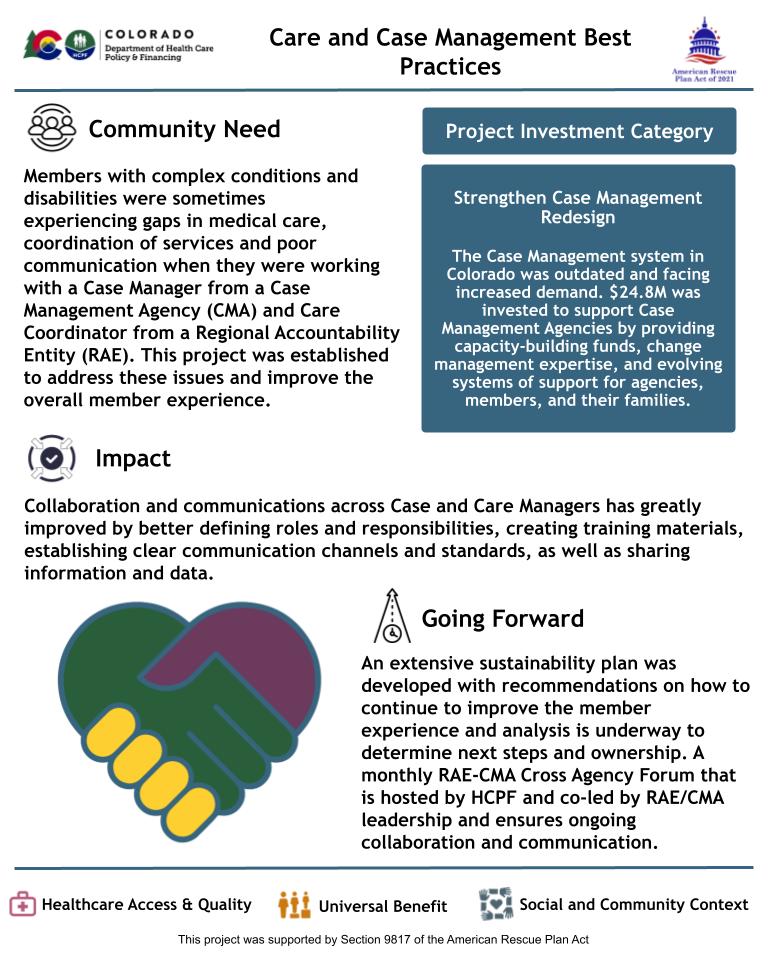
Initiative 5.05 - Case Management Agency Training Program
Read a more in-depth summary of this project's outcomes
